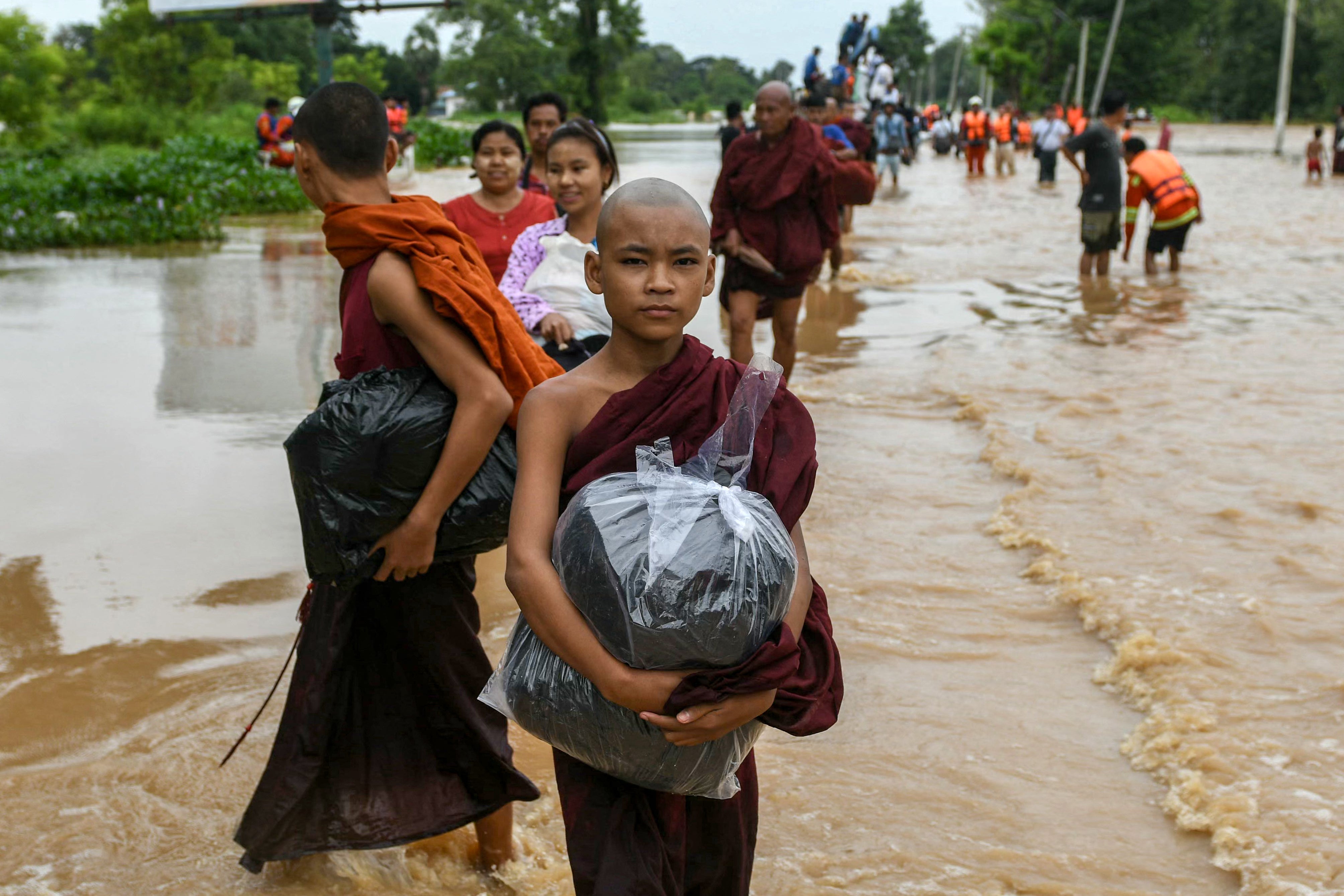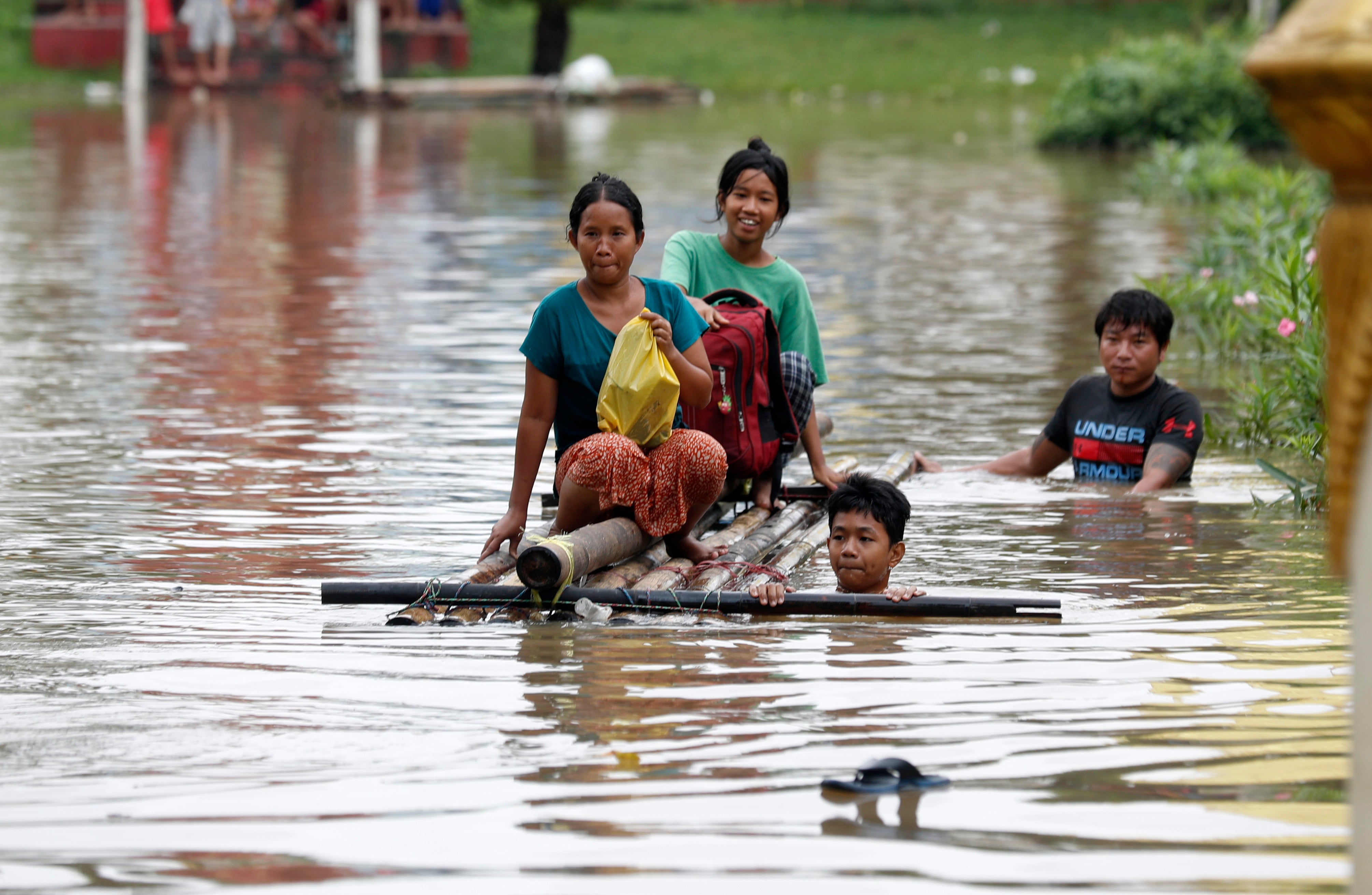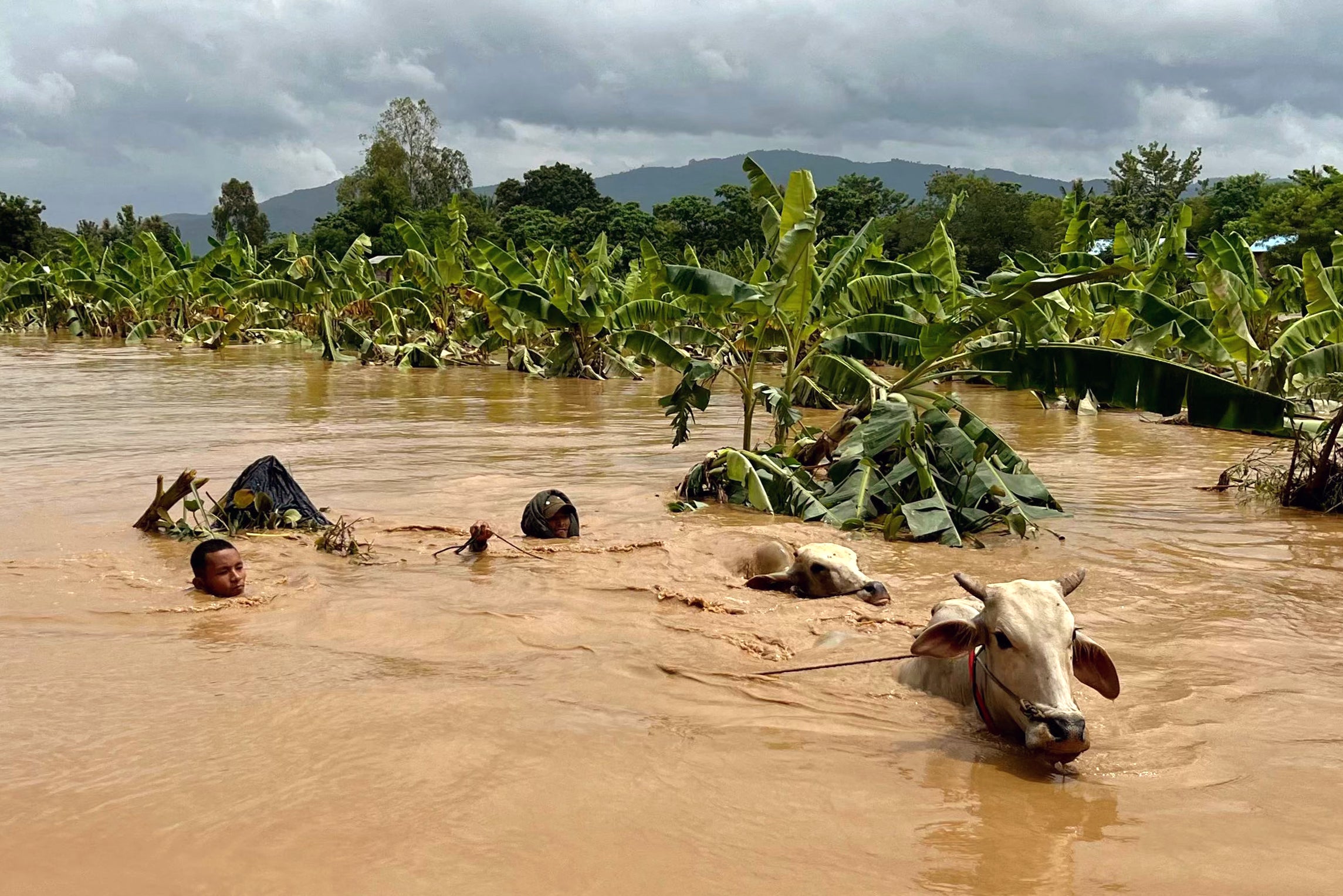Myanmar’s military junta has issued an unprecedented appeal for foreign aid after thousands were forced to flee after being hit by Typhoon Yass, the strongest storm to hit Asia this year, caused severe flooding and a deepening economic crisis.
The junta said the floods had killed at least 33 people across the country and forced more than 235,000 to flee.
But there are fears the actual death toll could be much higher as the true scale of the damage is only now becoming clear. Communications with much of the affected area have been cut off by landslides and heavy flooding.
Myanmar was one of the last countries to be hit directly by Typhoon Yagi after it passed through the Philippines, China, Vietnam and Thailand, leaving a trail of destruction and leaving at least 300 dead.
The capital, Naypyidaw, was hit by heavy flooding on Thursday, part of an area of about 162 square kilometres (100 sq mi) that was hardest hit by the deluge, according to satellite imagery analysis by the UN-backed Myanmar Information Management Unit (MIMU). Myanmar’s second-largest city, Mandalay, was also badly affected.

The disaster exacerbated many challenges for a country that has been plagued by civil war and ethnic violence since the military seized power in a coup in 2021. War led to a devastating economic crisis that severely hit exports.
“Government authorities need to liaise with foreign countries to receive rescue and relief materials to be provided to victims,” junta leader Min Aung Hlaing said on Friday, according to the state-run Global New Light of Myanmar newspaper.
“Rescue, relief and rehabilitation measures need to be carried out as quickly as possible,” he was quoted as saying.
A military spokesman said the army had lost contact with parts of the country and was investigating reports that dozens of people had been killed or buried in a landslide in a gold-mining area in the central Mandalay region.
Pictures showed hundreds of villagers, including children, wading through chin-deep water across the country to seek safety, with some forced to take refuge in trees overnight to escape raging floodwaters.

People were evacuated using boats and bamboo rafts as their houses were submerged in muddy water.
Landslides and floods cut off roads and bridges and destroyed utility poles, buildings and homes.
Myanmar’s rare appeal for aid comes after the military previously blocked humanitarian aid from abroad. About a third of Myanmar’s 55 million people depend on humanitarian assistance to survive, but many aid agencies, including the International Committee of the Red Cross, say they are unable to work in many areas because of access restrictions and security risks.
Three years of conflict have already forced more than 2.6 million people to flee the country, claiming thousands of lives, and the United Nations Office for the Coordination of Humanitarian Affairs (OCHA) has said more than 18.6 million people are in need of humanitarian assistance.
The report noted that flooding will increase the spread of waterborne diseases and further limit health services by limiting access to clean water and sanitation.

“They are living with the fear of armed conflict and violence. Livelihoods have been destroyed and countless people have lost their ability to support themselves,” ICRC President Mirjana Spoljaric said on Wednesday.
After Cyclone Nargis killed 138,000 people in Myanmar in 2008, the then military junta was accused of blocking emergency aid and denying access to humanitarian workers and supplies.
Myanmar cut off access to aid groups trying to deliver help to the one million people affected by last year’s powerful Cyclone Mocha.







